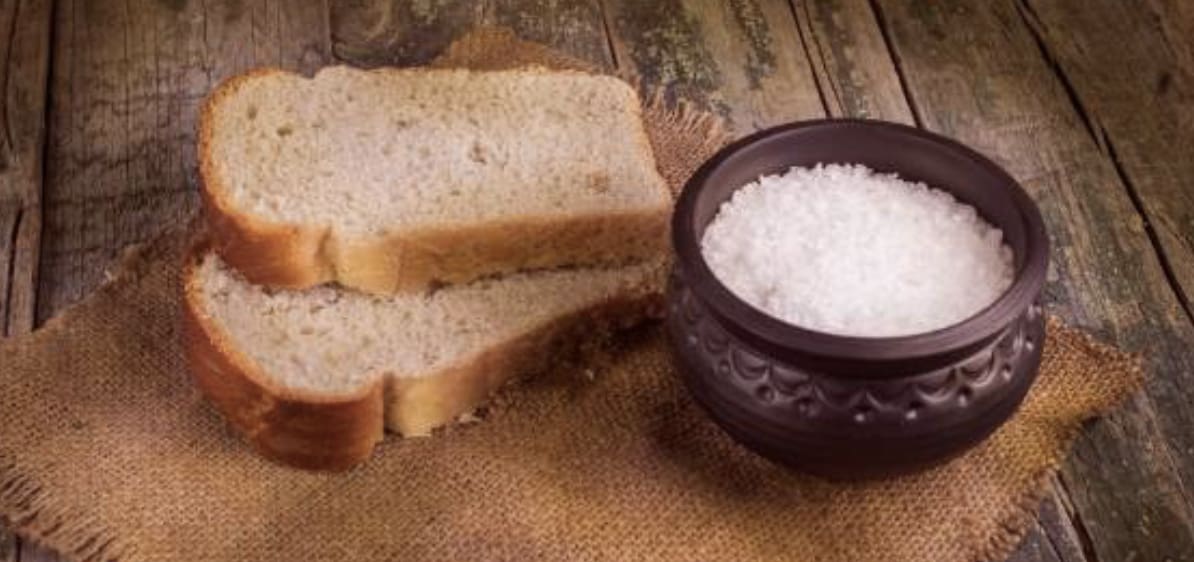How “Salt” and Agh Are the Same Word?

The custom of offering bread and salt to guests is common to many Eastern European, but also Middle Eastern people, as well as to Armenians (աղ ու հաց agh oo hats “salt and bread”), although its meaning may have variations from country to country. It is also a figure of speech, since you share bread and salt every time you sit to have a meal with a guest.
You also share something more: the common origin of “salt” in both English and Armenian. The word salt comes from Old English sealt, derived from Proto-Germanic *saltom (German salz comes from here, hence the name of the hometown of Wolfgang Amadeus Mozart, Salzburg). This word common to Germanic languages, at its turn, comes from the common Proto-Indo-European language, where it has been reconstructed as *sal- . This is why we have, for instance, Latin sal, from which we are familiar with Spanish sal and French sel.
Armenian is an Indo-European language, but what does agh have to do with *sal-?
Unlike their Indo-European sister languages, Armenian agh and Greek ἅλς (‘als, pronounced hals) also come from *sal, but did not keep the initial *s, which fell on the way and was replaced either by an aspiration, in the case of Greek, or just by nothing, in the case of Armenian.
The letter ghad (ղատ), that is, gh (ղ), was derived from the Proto-Indo-European sound *l. You may remember that this letter was not pronounced gh in the fifth century, but as a variant of the sound l (լ); for this reason, աղ sounded close, but not exactly the same, to al (the exact scientific transliteration is ał). The letter ghad was the counterpart to the Greek letter lambda (l / λ). We have, for instance, the Biblical name Ghugas (Ղուկաս), which is the Greek Λουκάς (Loukas) or the English Luke.
The result of this inquiry is that:
Proto-Indo-European *sal ð Armenian agh
Proto-Indo-European *sal ð Latin sal ð Spanish sal
Proto Indo-European *sal ð Proto-Germanic *saltom ð English salt
Interestingly, salt-y and its Armenian translation agh-i (աղի) also share the same sound i to create the adjective. Therefore, look over your health: don’t eat too salty! Or, if you want to say it in Armenian, shad aghi mi oodek (շատ աղի մի՛ ուտէք).
